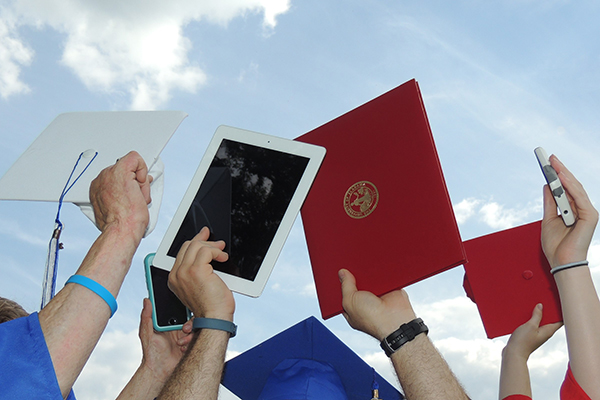By Anna Keller
Correspondent, The Alabama Baptist
College grads preparing to enter the workforce are armed with lots of knowledge when it comes to subject matter or trade-specific know-how, but having strong social skills can be just as critical to landing — and keeping — that first job.
The good news, says human resources professional Tiffaney Sides, is that many young people today possess strong in-person and interpersonal communication skills, helping them interview well, build relationships with co-workers and give and receive feedback in a mature manner.
Hard-working group
“They seem to listen well to feedback and communicate well with their managers,” said Sides, who has worked in human resources for 25 years. “For the most part, they seem at ease working with people outside of their generation as well.”
They also tend to be a group of hard workers, said John Roland, director of development and marketing at The Foundry Ministries. He goes as far as to call younger workers “the hardest working employees we have.”
“I have been incredibly blessed with the young people I directly work with who are completely dedicated to our mission and who selflessly serve the volunteers and program participants,” he said. “They give so much because they fully believe in our vision and mission and are our best brand ambassadors.”
Where does this generation fall short?
According to Sides, they need to be better about making themselves available to nondigital communication during the interview process.
“So many don’t include a phone number on their resumé, and yet hiring managers want to have a conversation with someone rather than just an email exchange,” she said. “I feel like the younger generation doesn’t recognize the importance of that type of communication. Also, make sure you have a professional voicemail message — and be sure your mailbox isn’t full.”
It’s important to listen to a voicemail, too, before calling a missed number back, she said.
“I often get a call from someone who says, ‘I missed a call from this number,’ and I ask if they’ve listened to the voicemail I left and they tell me no,” she said. “That just comes across as so unprofessional.”
Casual vs. professional
Speaking of professional, Sides recommends that candidates resist the urge to be casual during the interview process — even if the job they’re interviewing for skews less professional (in dress, communication or other areas).
“Even though a lot of businesses have become more casual, that doesn’t mean you should be casual when you’re looking for a job,” she advised. “Keep your appearance and communication professional until you get the job and then you can adjust more to the culture once you’re there.”
Another piece of advice, Roland said, is to use discretion when communicating electronically.
“One thing I have noticed even in our best young employees is a need for wisdom in what is communicated electronically and put in writing in emails and on social media,” he said. “I’m afraid if they are not careful, impulsive emails and social media posts could be misinterpreted and used against them by [human resources] or future bosses. I am always very careful what I put in writing.”
________________________________________________________________________
Etiquette tips for job seekers
1. Dress for the situation. Even if an office has a casual dress policy, business attire is appropriate for an interview.
2. Be on time and be prepared.
3. When meeting someone for the first time, offer a smile and extend your hand to shake.
4. If you are meeting with a potential employer in an office setting, make sure to greet the office staff and others you encounter.
5. Always stand when you are being introduced to someone. If standing is not possible, lean forward to show interest.
6. In a conversation, listen at least as much as you talk.
7. Speak up. You don’t have to yell, but others should not have to strain to hear what you are saying.
8. Maintain eye contact during a conversation.
9. Silence your cell phone and do not look at it during your interview.
10. Follow up an interview with a thank you note. Email is acceptable and more immediate. (TAB)






Share with others: